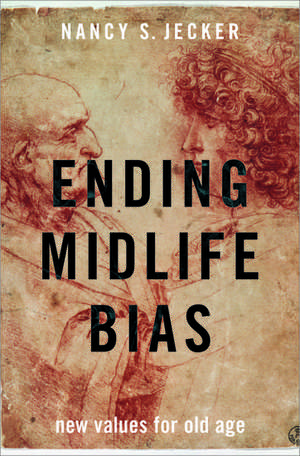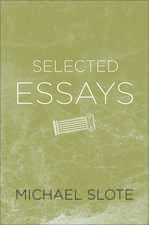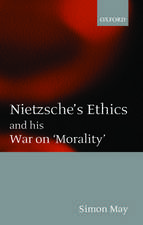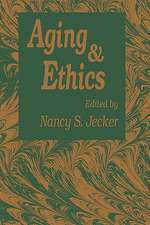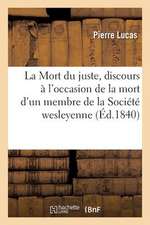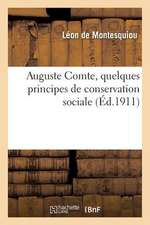Ending Midlife Bias: New Values for Old Age
Autor Nancy S. Jeckeren Limba Engleză Hardback – 29 iun 2020
Preț: 262.09 lei
Preț vechi: 299.69 lei
-13% Nou
Puncte Express: 393
Preț estimativ în valută:
50.16€ • 52.23$ • 42.39£
50.16€ • 52.23$ • 42.39£
Carte tipărită la comandă
Livrare economică 26 februarie-04 martie
Preluare comenzi: 021 569.72.76
Specificații
ISBN-13: 9780190949075
ISBN-10: 0190949074
Pagini: 360
Dimensiuni: 236 x 163 x 31 mm
Greutate: 1 kg
Editura: Oxford University Press
Colecția OUP USA
Locul publicării:New York, United States
ISBN-10: 0190949074
Pagini: 360
Dimensiuni: 236 x 163 x 31 mm
Greutate: 1 kg
Editura: Oxford University Press
Colecția OUP USA
Locul publicării:New York, United States
Recenzii
The book is clearly written, thoroughly referenced, historically grounded, and thought provoking. Jecker's text will be welcomed by anyone with an interest in bioethics or aging who is willing to question the dominance customarily given to autonomy across the life-span. Recommended. Upper-division undergraduates. Graduate students, faculty, and professionals. General readers.
Jecker...provides an in-depth, scholarly analysis of Western bioethics values considered across the life-span, but the emphasis is on old age. Jecker's main argument is that values other than autonomy should be given more weight in stages other than midlife, and that failure to do so harms individuals and societies...The author builds her arguments logically, anticipating objections and systematically addressing them with ethical humility. The book is clearly written, thoroughly referenced, historically grounded, and thought provoking. Jecker's text will be welcomed by anyone with an interest in bioethics or aging who is willing to question the dominance customarily given to autonomy across the life-span... Recommended. Upper-division undergraduates. Graduate students, faculty, and professionals. General readers.
The first 50 years of American bioethics focused attention on autonomy in relation to suffering, medical technology, and the end of life. Yet the long last stage of life
Ending Midlife Bias is a unique, precisely argued, and compelling book which challenges the notion that the values of midlife are the measure of a good life. Readers have much to learn from Jecker's original conception of justice between generations and the moral principles that support it. A superb piece of scholarship with practical implications for everyday life.
A comprehensive, highly readable examination of how different stages of life require different ethical analysis. Jecker's defense of often controversial claims is intriguing.
Ending Midlife Bias is ambitious. It seeks to reshape basic assumptions in how we approach bioethics. I think it is a valuable read at two levels. On an individual level, it's food for thought. Readers are left to contemplate their biases and re-assess how they think about life itself including their own roles in an ongoing story. At a scholarly level, it confronts institutions and ethics councils with deeply ingrained biases that, if her critique is correct, corrupt even the most basic principles of bioethics...But Jecker may convince them that the fact that our values change over time has massive ethical significance. And that power makes Ending Midlife Bias a read worthy of our attention.
Jecker...provides an in-depth, scholarly analysis of Western bioethics values considered across the life-span, but the emphasis is on old age. Jecker's main argument is that values other than autonomy should be given more weight in stages other than midlife, and that failure to do so harms individuals and societies...The author builds her arguments logically, anticipating objections and systematically addressing them with ethical humility. The book is clearly written, thoroughly referenced, historically grounded, and thought provoking. Jecker's text will be welcomed by anyone with an interest in bioethics or aging who is willing to question the dominance customarily given to autonomy across the life-span... Recommended. Upper-division undergraduates. Graduate students, faculty, and professionals. General readers.
The first 50 years of American bioethics focused attention on autonomy in relation to suffering, medical technology, and the end of life. Yet the long last stage of life
Ending Midlife Bias is a unique, precisely argued, and compelling book which challenges the notion that the values of midlife are the measure of a good life. Readers have much to learn from Jecker's original conception of justice between generations and the moral principles that support it. A superb piece of scholarship with practical implications for everyday life.
A comprehensive, highly readable examination of how different stages of life require different ethical analysis. Jecker's defense of often controversial claims is intriguing.
Ending Midlife Bias is ambitious. It seeks to reshape basic assumptions in how we approach bioethics. I think it is a valuable read at two levels. On an individual level, it's food for thought. Readers are left to contemplate their biases and re-assess how they think about life itself including their own roles in an ongoing story. At a scholarly level, it confronts institutions and ethics councils with deeply ingrained biases that, if her critique is correct, corrupt even the most basic principles of bioethics...But Jecker may convince them that the fact that our values change over time has massive ethical significance. And that power makes Ending Midlife Bias a read worthy of our attention.
Notă biografică
Nancy S. Jecker is a Professor of bioethics and philosophy at the University of Washington School of Medicine, Department of Bioethics and Humanities. She holds a Visiting Professorship at the University of Johannesburg, African Centre for Epistemology and Philosophy of Science, and past visiting professorships at the National University of Singapore Center for Biomedical Ethics and the Chinese University of Hong Kong Centre for Bioethics. She is a three-time Rockefeller Foundation awardee, two-time National Endowment for the Humanities awardee, Brocher Foundation Visiting Researcher, and Japanese Society for the Promotion of Science International Fellow. Dr. Jecker was elected to the board of directors for the International Association of Bioethics (2019-2021) and the American Society for Bioethics and Humanities (2017-2019).
